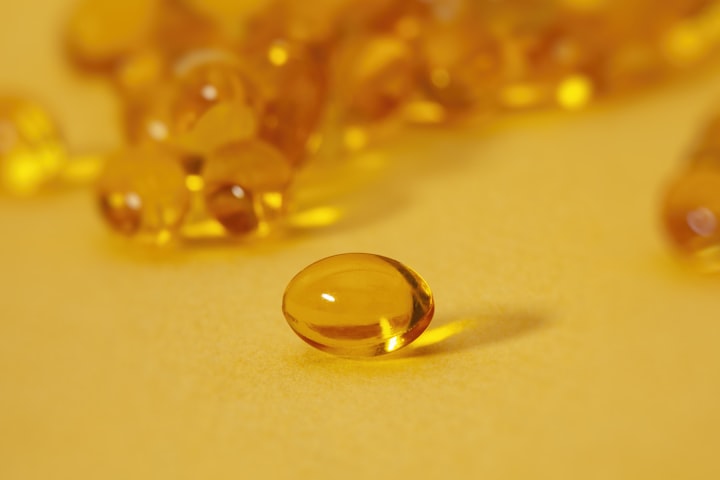What is Vitamin B12? With The Help Of Science
7 Health Benefits of Vitamin B12

Vitamin B12 supplements have recently been shelved. Whether in the form of chewable gummies or capsules, you may have seen them in the corridors of your local grocery store or pharmacy. Now it's time to ask, what's all the hype around this essential nutrition?
In this article, I will give you a quick overview of what Vitamin B12 is all about, as well as some of the health benefits of this nutrition.
What is Vitamin B12?
Vitamin B12 is also known as cobalamin. According to the Mayo Clinic, it is used in the formation of red blood cells, nerve functions and the creation of DNA. The Mayo Clinic notes that vitamin B12 deficiency is rare because your body can store it for many years. However, if you follow a low-fat diet in meat products, such as vegan or vegetarian diets, you may be at greater risk of deficiency. In addition, older adults are more likely to be deficient in vitamin B12.
According to the UK's National Health Service (NHS), symptoms of vitamin B12 deficiency include fatigue, muscle weakness, mood disorders (such as depression or confusion), and memory problems. [2] Therefore, it is important to make sure. You are getting enough vitamin B12 in your diet.
Key sources of B12
According to the Mayo Clinic, the best sources of vitamin B12 are animal products, such as poultry, meat, fish and dairy products. Some foods also contain vitamin B12 during processing. Strong breakfast cereals or some commercial yeast are two examples of this trend.
Given the fact that vitamin B12 comes mostly from animal sources, people who follow a strict vegetarian or vegetarian diet may have difficulty meeting this nutritional requirement. In these cases, vitamin B12 can be supplemented. The two most common ways to supplement B12 with food are through oral supplements or injections.
7 Health Benefits of Vitamin B12
Here are seven scientifically backed health benefits of Vitamin B12.
1. Reduces the risk of anemia.
According to the Mayo Clinic, anemia is a condition in which your body does not have enough healthy red blood cells. This means that the blood cannot properly carry oxygen to all parts of your body, which can cause symptoms such as fatigue, cold hands and feet, difficulty breathing, or muscle weakness.
Given its role in the formation of red blood cells, it is understood that one of the benefits of vitamin B12 is the prevention of anemia. When you are deficient in vitamin B12, your body's red blood cells become very large and take on a random shape. This causes them to be unable to move properly throughout your body, leading to a certain type of anemia called "megaloblastic anemia".
2. May reduce the risk of osteoporosis.
Given the fact that vitamin B12 is very important in the function of DNA, it is understandable that it will also be an important component of bone formation.
A study published in the Journal of Bone and Mineral Research found that people with high levels of vitamin B12 also had higher bone mineral density. Lower bone mineral density is an indication of osteoporosis. This study suggests that people who do not have adequate levels of vitamin B12 may be at risk for osteoporosis.
3. Can improve heart health.
Homocysteine is a building block of amino acids or proteins. When proteins are broken down, homocysteine is one of the products. Studies show that high levels of homocysteine increase the risk of developing heart disease. In humans, high levels of homocysteine usually indicate a deficiency of folic acid (vitamin B9) or vitamin B12.
According to the National Institutes of Health (NIH), vitamin B12 (along with other B vitamins such as folic acid and vitamin B6) can lower your homocysteine levels. However, it is important to note that NIH reports that taking B12 supplements does not reduce the risk of heart disease.
If you are looking for a supplement specifically to improve heart health, it may be helpful to consider omega 3 fatty acid supplements instead.
4. May reduce the risk of birth defects.
As mentioned earlier, it is recommended that pregnant women add more vitamin B12 to their diet than the average adult. This is because vitamin B12 deficiency is linked to birth defects, such as neural tube defects, and complications in pregnancy. Therefore, pregnant women need to make sure that they are meeting the recommended daily intake of vitamin B12 to prevent birth defects in their babies.
5. May reduce your risk of depression.
According to the World Health Organization, depression is extremely common and affects more than 264 million people worldwide. This mental health disease can affect people of all ages.
The American Women's Health and Aging Study found that adult women with depression were more likely to be deficient in vitamin B12 than those who were not. In fact, they found that people who were deficient in vitamin B12 were more than twice as likely as their depressed counterparts to be depressed.
Another study in the elderly population supports these findings. Rotterdam studies show that older people who are deficient in vitamin B12 are more likely to develop depression.
Studies have also shown that vitamin B12 supplements can improve the symptoms of depression. In a study published in the journal Open Neurology, 100% of depressed people treated with vitamin B12 supplementation showed a reduction in depressive symptoms after three months.
6. Can improve your perception.
A study published in the Journal of the American Academy of Neurology found that the concentration of B12 markers in the body was related to cognitive functions and brain volume. Research has shown that if these markers are deficient in vitamin B12, the total volume of the brain may decrease, which may lead to a decrease in cognition.
Another study found that people with low levels of vitamin B12 had poor memory and poor learning ability.
7. Can improve the health of hair, skin and nails.
One of the most popular reasons for taking vitamin B-12 is its effects on hair, skin and nails. According to the American Journal of Clinical Dermatology, vitamin B12 deficiency can lead to hyperpigmentation, hair changes, skin changes, and glossitis (inflammation of the tongue) in general. [16] Adequate intake of vitamin B12 Doing so, whether through diet or supplementation, will prevent these adverse reactions from occurring.
How much vitamin B12 do you need?
According to the National Institutes of Health (NIH), adults are recommended to receive 2.4 micrograms (mcg) of vitamin B12 daily. Certain groups of adults need different levels of this nutrition. Pregnant women are recommended to take 2.6 mcg of B12 daily, and women who are breastfeeding are recommended to increase their daily dose of vitamin B12 to 2.8 mcg.
Given the fact that vitamin B12 is a water-soluble vitamin, your body only absorbs as much as it needs and the rest will be excreted through your urine. This means that there is no benefit to taking more than the recommended amount of vitamin B12. Furthermore, this means that vitamin B12 is less likely to be toxic, which makes it extremely safe.
In conclusion
Vitamin B12, or Cobalamin, plays an important role in the formation of red blood cells, nerve functions, and DNA synthesis. As I mentioned here, getting enough vitamin B12, whether through diet or supplementation, can improve cognition, reduce your risk of osteoporosis, and reduce your risk of depression. Or can reduce the symptoms of depression.
Although it is always better to get vitamins through diet, vitamin B12 supplements are generally considered safe, especially for those whose diet is low in animal products such as meat, milk and fish. Is.
If you are worried about your vitamin B12 levels, we recommend that you talk to your doctor to find out if your levels are really low and if the supplementation is right for you.
About the Creator
Leo mendoria
A central question that drives my work is “How can we live better” To answer that question I like to write about science-based ways to solve practical problems☂






Comments
There are no comments for this story
Be the first to respond and start the conversation.